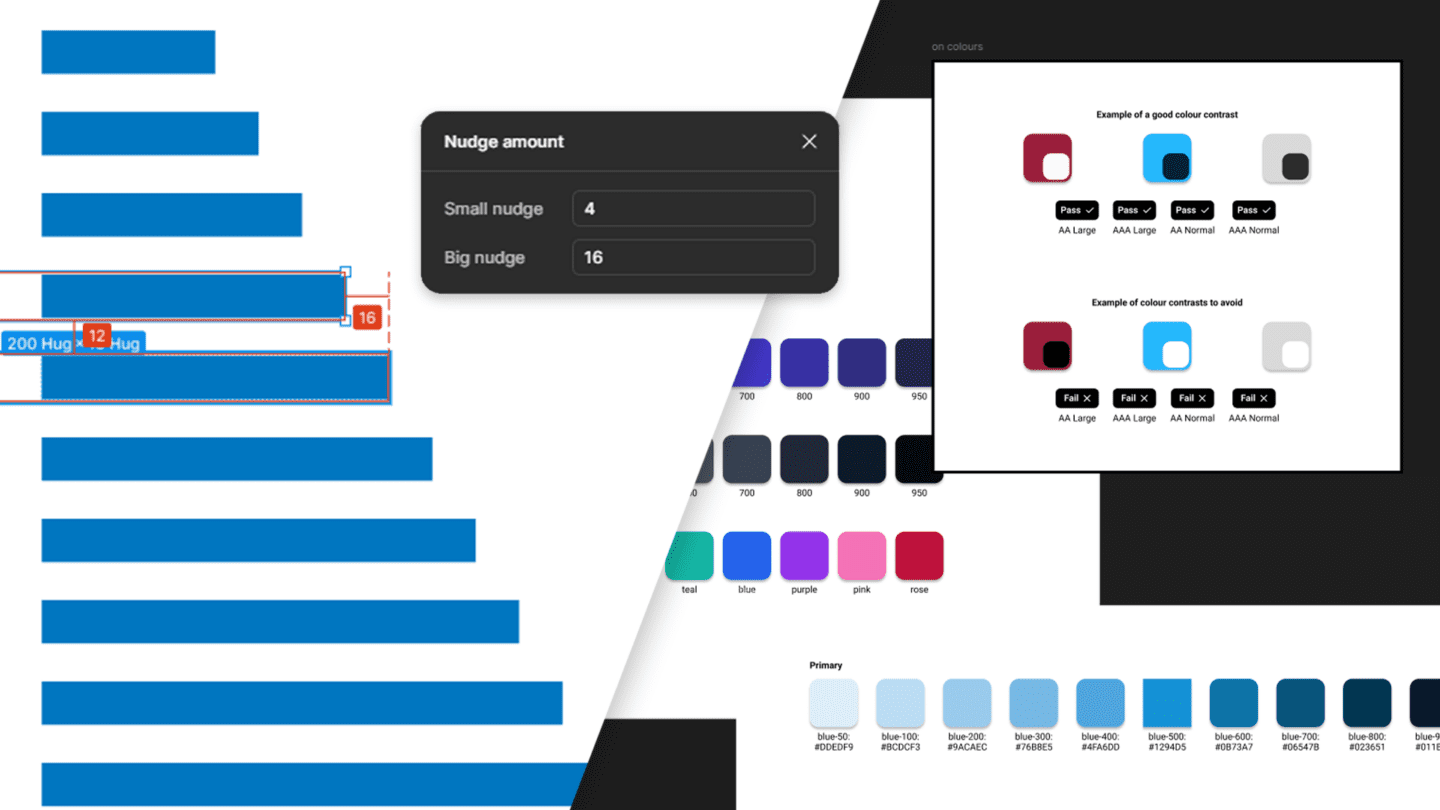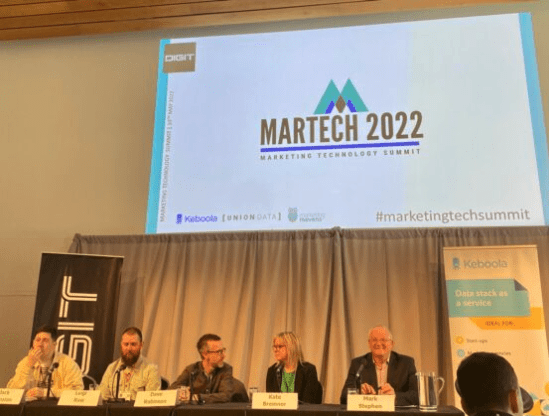
We attended the Marketing Technology Summit on 10 May, hosted by DIGIT, to learn about the latest trends and technologies in Marketing – with a particular interest in how these affect the User Experience. This year’s summit focused on adapting to the customer experience and addressing their evolving expectations in the fast-shifting digital world.
While marketing is ever-changing and evolving, since the start of the pandemic in 2020 businesses have had to adapt to the largest shifts and disruptions to new consumer habits. From social selling and marketing automation to data analytics and changing consumer behaviours, the speakers gave an extensive overview of what businesses should be on the lookout for in the near future.
Below, we’ve highlighted the top talks and takeaways from the event:
Pivot! Leading Marketing Teams in an Increasingly Changeable World
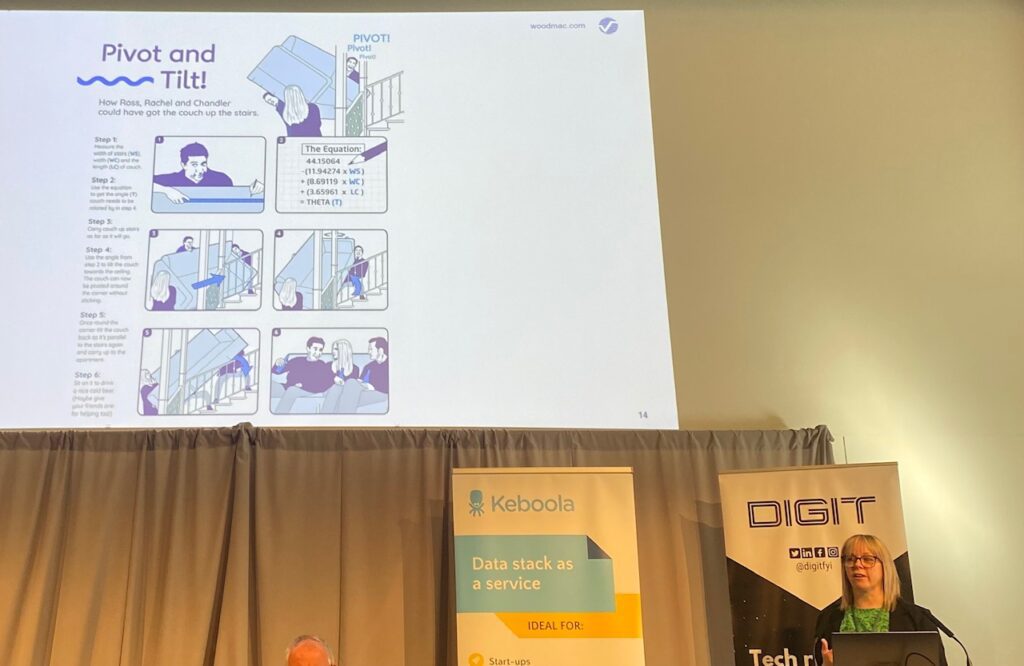
“We are now compared against our consumers’ best digital experiences and not just our sector competitors.”
Kate Bremner – Director of Global Marketing, Wood Mackenzie
As consumers experience an array of digital experiences throughout their day, with digitisation increasing significantly due to the pandemic, they are benchmarking their experiences not just against an organisation’s peers but against the best in class. As such, they are expecting the same quality of experience from their utility company as they do from their high-end shopping experiences.
Presenting attendees with the newly released 2022 Marketing Technology Landscape map, Kate Bremner, Director of Global Marketing at Wood Mackenzie highlighted that there are now almost 10,000 MarTech vendors who offer an endless variety of solutions and opportunities, which also means that levels of competition amongst companies have never been higher.
Improving the Customer Experience with Advanced Analytics
Marketing technologies enable companies to find tech solutions that make the best use of data and analytics available to personalise the customer experience. Luigi Raw, Senior Data Engineer with Enjoy Digital, spoke about the role and importance of Data Engineering and Analytics in marketing.
With almost ten thousand tech solutions to pick from, Luigi addressed the question “where do we even begin to pick the right vendor?” He suggests starting the journey by focusing on the problem that needs solving, rather than looking at the offerings of the various technologies. It’s important to think about What is the problem. How can we solve it? What does this enable our clients to do moving forward? And perhaps most importantly, what are the cost benefits of this solution?
With the right MarTech, data can empower companies to make the right marketing decisions, by enabling decision-makers to make faster and more informed choices.
“With so many options available in MarTech, we need to step back and look at finding ways to solve the problem of automating obscure datasets – as they are the biggest resource issue.”
Luigi Raw – Senior Data Engineer, Enjoy Digital
The Economics of MarTech: Do Yours Stack Up?
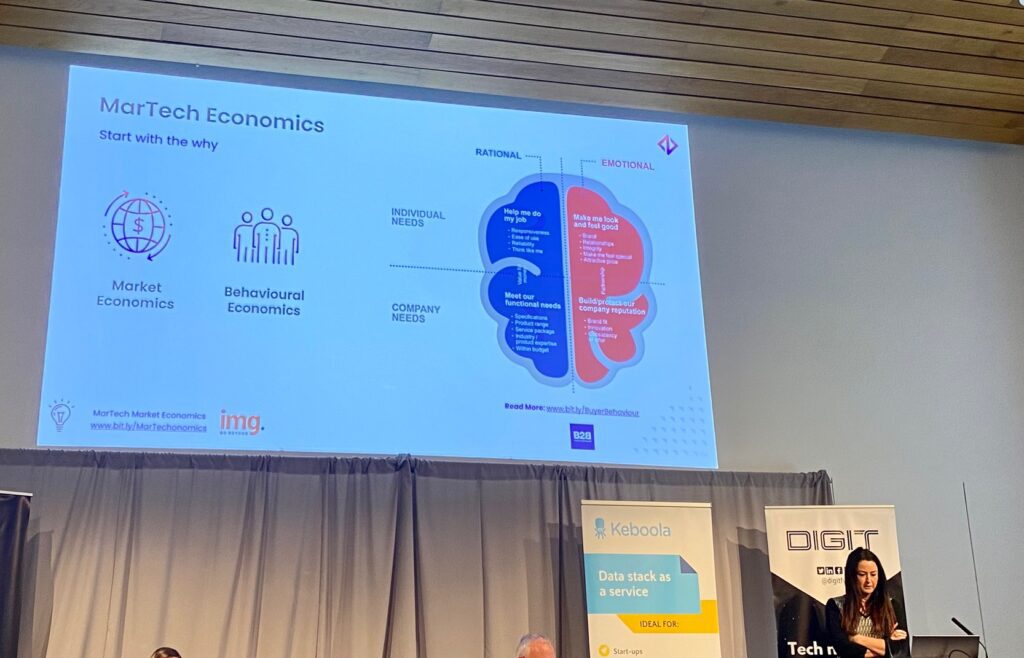
Andrea Linehan, Global Chief Marketing Officer at Zai Financial Services, then rounded out the conversation on Martech vendors by discussing the economics. As MarTech options seem endless, she challenged businesses to consider the trade-offs that come with every service and how there is no one size fits all solution for companies.
Andrea went on to explain that there is both power and peril in data measurement and why marketers and brands need to find the right balance to avoid a mass of fragmented data which costs them an unnecessary fortune.
Customer Behaviour is Changing: Data Strategies to Help You Thrive
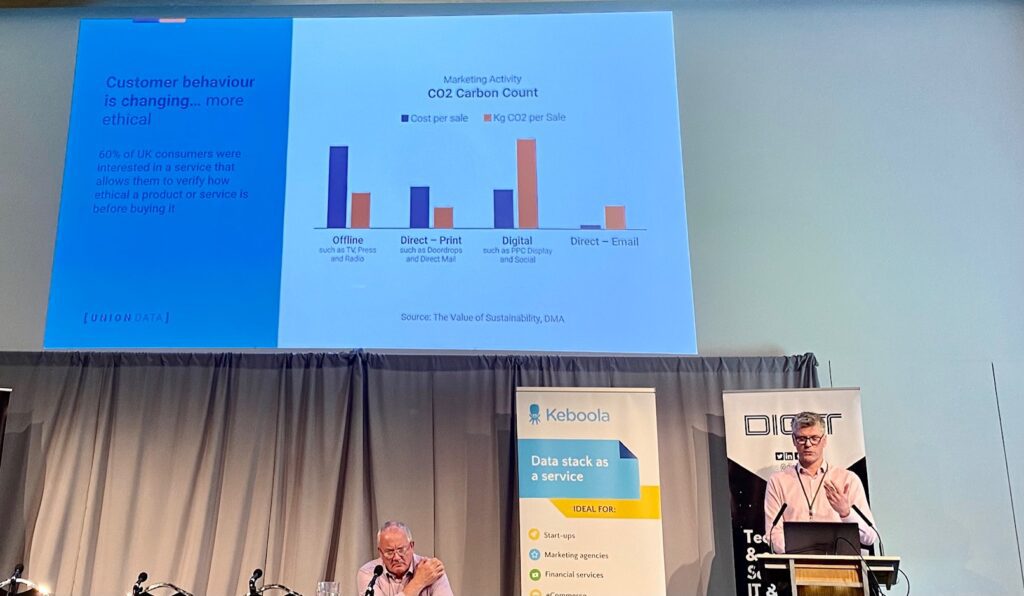
Customer behaviour is ever-changing and businesses must have a strategy to not only cope with these changes but to thrive with them.
Daniel Batey, Managing Director of Union Data, highlighted how first-party data is one of the most valuable resources for an organisation with more and more organisations realising its value. He also highlighted the biggest changes to customer behaviours in the last few years:
- The shift to a cashless society.
- The impact of the Covid pandemic on e-commerce.
- The boom of subscription services in the last year (highlighting that 67% of retailers are planning to launch a subscription service in the near future).
- Values first shopping, as consumers are searching for businesses whose ethics align with theirs.
Marketing in a Cookieless World
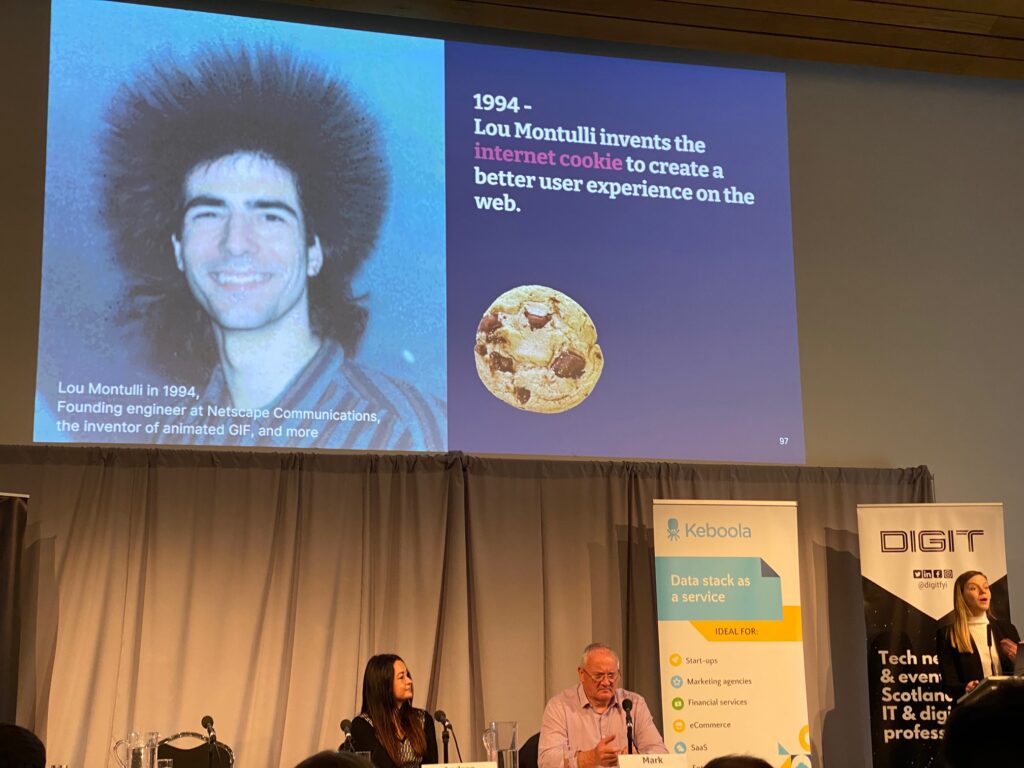
Natalie Drucker, Global Head of Digital Marketing Technologies at Thoughtworks, rounded out the day’s talks by walking attendees through the rise and fall of Internet Cookies. As the governance surrounding data continues to tighten and Google’s announcement that they will be removing third-party cookies in 2023, Natalie urged businesses to consider not only how to remain compliant but also how to create the best user experience in doing so.
So, what does it mean for businesses reliant on the insights from cookies to create personalised experiences? Natalie highlighted the key points to consider:
- Make Good First Impressions: Avoid using too many pop-ups as customers enter your site and keep the cookies screen as simple and informative as possible.
- Pull vs Push Strategy: Allow users to engage with content before requesting their information (such as asking for an email address for a PDF download following an overview). If the content proves valuable, users will want to engage with brands organically.
- Contextual Value Exchange: Explain to your customers what the context of the cookies are and how they will be used. For example, you can divulge that first-party cookies are being collected to save shopping basket contents for later.
- Ask instead of guessing: Ask website visitors from the get-go what their purpose of visiting the site is (Examples: I am Student/Teacher/Donor/Event Planner for a university website) and provide a custom website experience based on this. Information provided in this manner is considered Zero Party Data.
- Provide VIP Segments with a reason to sign in: Whether it is access to research studies or a range of exclusive benefits, giving customers a reason to sign up as a member can provide you with detailed insight while providing the customer with increased value.
Closing Thoughts
One of the key takeaways from all the discussions was once more the importance of being user-led while creating and implementing business strategies. While marketers want to design the user experience to fit their business objectives, it is instrumental that customers are allowed to explore and decide their digital marketing journey for themselves.
Whether your audience is looking to be surprised and delighted with your marketing activities or wishing to opt out entirely, personalisation is about listening to your audience and providing them with the experience that they want.
A huge thanks once more to DIGIT, who organised this brilliant event (as well as many other great events throughout the year). To learn more about these topics and to watch the archived sessions from the event head to the DIGIT YouTube page. You can also go to the DIGIT website to see a list of their next events.
